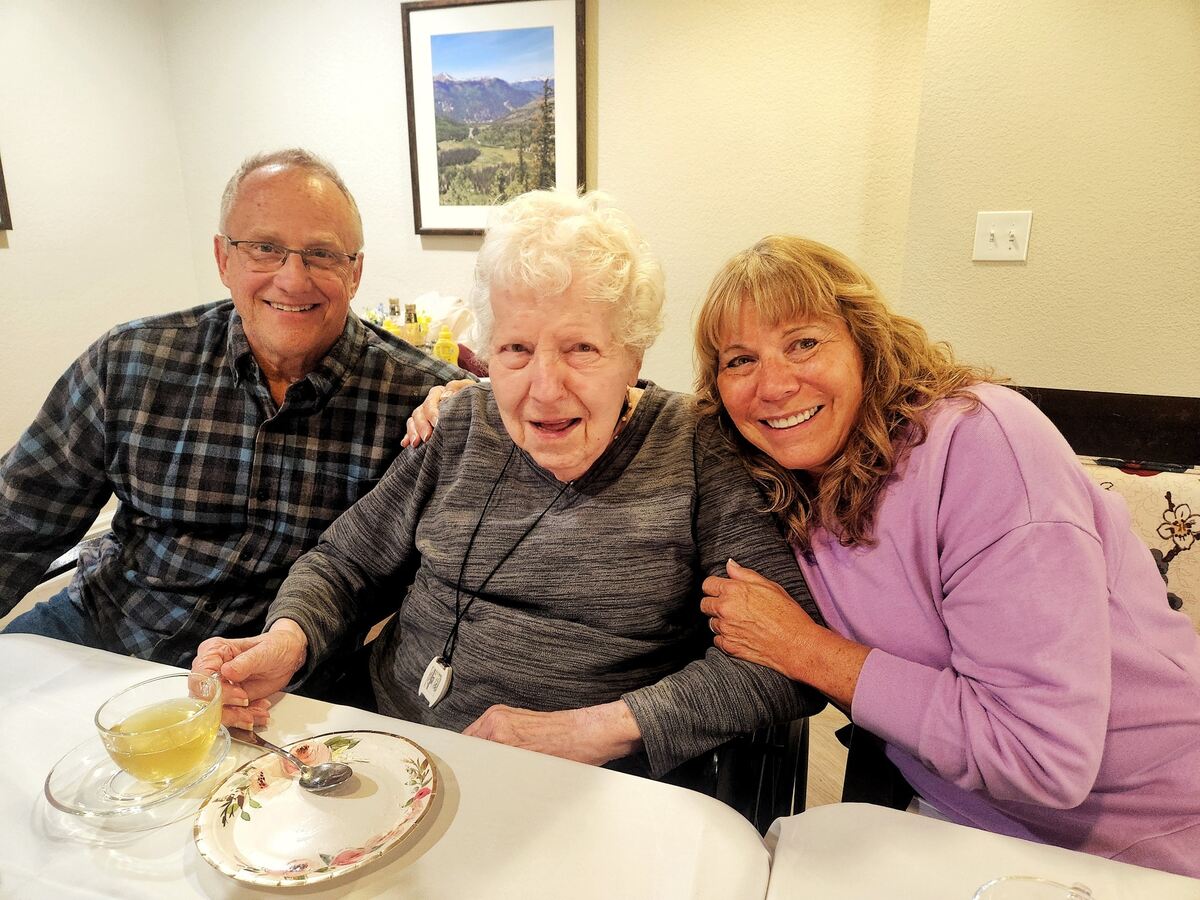We understand that caring for a loved one with dementia can be a challenging and emotional journey. Witnessing a loved one’s symptoms can be puzzling and heartbreaking. However, if you are a relative’s primary caretaker, it can also be an ongoing, constant journey.
It’s natural to wonder if they are aware of their confusion and disorientation. Follow along as our Denver memory care experts answer this question. We’ll also share strategies to help reduce those symptoms in seniors with dementia.
Confusion vs. Disorientation
Confusion and disorientation are distinct yet often interrelated symptoms of dementia:
- Confusion generally refers to a state where a person has difficulty understanding their surroundings, making decisions, or recognizing familiar people and places. It can manifest as an inability to follow a conversation or complete simple tasks, leading to frustration and anxiety.
- Disorientation specifically pertains to a loss of awareness regarding time, place, or person. A disoriented individual might not know where they are or what day it is. This disconnection from reality can cause significant distress and further complicate the person’s ability to interact with their environment.
Understanding these differences is critical for caregivers. By recognizing whether a person is confused or disoriented, caregivers can tailor their support strategies, ensuring a more secure, comforting environment for those with dementia.

Does a person with dementia know they are confused?
While that may seem like a simple question, the answer is not always clear. People with early-stage dementia may be aware they are experiencing memory loss or difficulty with tasks.
That awareness can be a source of frustration that leads to:
- Depression
- Agitation
- Combative behaviors
- Inactivity
- Becoming reclusive
However, as memory loss progresses, they may become less aware of their confusion and forgetfulness. This is due to the deterioration of brain cells that affect their ability to recognize and understand their cognitive decline.
Stages of Dementia and Memory Loss
Alzheimer’s and other forms of dementia are progressive. They affect the brain’s ability to function and will eventually require 24-hour care.
Memory loss and confusion may be mild and manageable in the early stages. The person may not be aware of their symptoms, but friends and family will likely notice a difference. With progression, a person with dementia may become increasingly frustrated.
As progression moves from the middle to late stages, the cognitive impairment becomes more severe. Seniors with dementia may begin to forget loved ones and important events. The timeline varies from person to person, and some seniors may experience a more rapid decline than others.
Strategies to Reduce Dementia Confusion and Disorientation
Dementia is not a natural part of aging, and researchers are still working on a cure. Thankfully, there are strategies that can help family members reduce their loved ones’ confusion and disorientation. Here are four tips:
- Stick to a Routine: This can provide a sense of structure and predictability that calms seniors with cognitive decline.
- Simplify the Environment: Remove clutter and unnecessary items from the home. Reducing distractions makes it easier for your loved one to navigate their surroundings.
- Use Memory Aids: Labels, signs, and other memory aids help seniors with dementia remember important information.
- Stay Engaged: Engage your loved one in activities they enjoy to promote mental stimulation.
The Importance of Physical and Social Activities
Consistent physical and social activity are connected to overall health and well-being. It also plays a key role in slowing the process of memory loss in seniors with dementia. These activities stimulate the brain’s ability to form new connections, a process called neuroplasticity.
Physical activity increases blood flow to the brain, which can help improve cognitive function and memory. Your loved one might benefit from:
- Taking a daily walk
- Participating in chair exercises
- Practicing yoga
Social activities provide mental stimulation and promote social connection. They might also like:
- Playing games
- Attending social events
- Simple arts and crafts projects
- Listening to relaxing music in group settings
Research shows that seniors who engage in physical and social activities have better cognitive function and a reduced risk of developing dementia. Moreover, staying active can slow the progression of memory loss in individuals with dementia. When the brain is busy, it forms new neural connections.
Incorporating physical and social activities into daily life can be challenging for seniors with dementia, but it’s essential to find enjoyable and accessible ones.
The Connections memory care program utilizes these strategies and provides residents with purposeful lifestyles.
Memory Care in Denver: The Connections Program at The Courtyards at Mountain View
The Courtyards at Mountain View Connections program is tailored exclusively for seniors facing memory loss. Within our protected and inviting environment, our devoted dementia care team provides unwavering support, ensuring residents receive the compassionate care they deserve.
Our trained team members are available 24/7 to assist with daily living activities. We offer a range of exercises, classes, and events that encourage residents to:
- Connect
- Move
- Learn
All the activities are carefully planned with this process in mind to promote mental stimulation and engagement.
Dr. Sandra Petersen created the memory care program. She overcame mobility and memory loss following a stroke by using neuroplasticity therapies. Her research into this treatment now inspires people with Alzheimer’s and dementia in Pegasus Senior Living communities nationwide.
Caring for a loved one with dementia can be challenging, but with the right strategies and support, it can be a rewarding experience. Remember that it’s okay to ask for help. Don’t hesitate to reach out to our team at The Courtyards at Mountain View if you’re looking for evidence-based memory care in Denver, CO.
A Resource for Dementia Caregivers in Denver, Colorado
Contact us to learn more about improving your loved one’s quality of life. Follow our guide for extra support near you.
